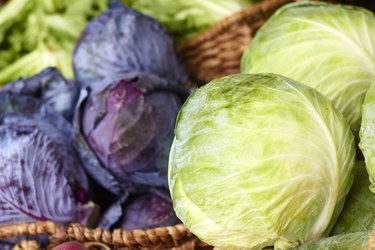
Everyone produces between one and four pints of gas per day. While flatulence is natural, excessive gas can be embarrassing and uncomfortable. Certain vegetables, especially when eaten raw, can trigger gas and bloating in sensitive people. Even if you're not particularly sensitive, increasing your intake of fibrous vegetables too quickly may cause intense gas.
Broccoli, Cabbage and Cauliflower
Video of the Day
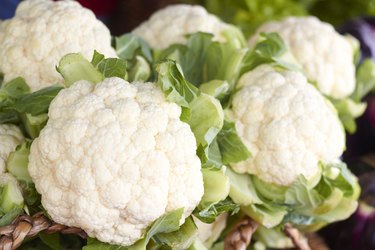
Raw broccoli, cauliflower and cabbage contain raffinose, a hard-to-digest sugar. Raffinose is also found in legumes and beans — notorious gas producers. Eating these vegetables cooked may still cause gas.
Video of the Day
Mushrooms
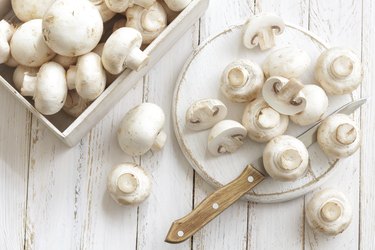
Mushrooms also contain raffinose. Although a low-calorie, flavorful salad topping, eating too many mushrooms can cause intestinal distress.
Cucumbers
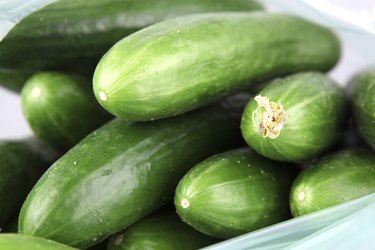
Cucumbers often cause gas and burping. They can also cause your gas to be malodorous. Eating these and other gas-producing foods in smaller amounts may not trigger symptoms.
Celery and Carrots
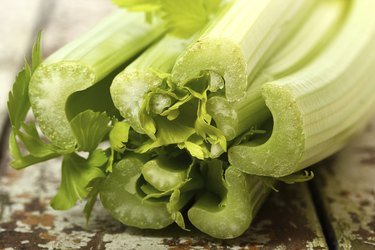
Celery and carrot sticks are low in calories and make a healthy alternative to fattier crunchy snacks, such as chips or crackers. If you start watching your calorie intake and suddenly increase your intake of these snacks, the extra fiber may cause you to become gassy.
Green Peppers and Radishes
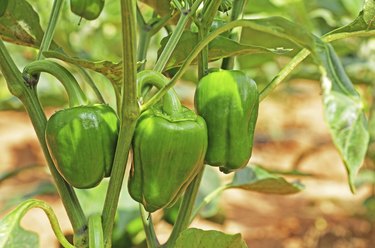
Commonly eaten raw in salads, green peppers and radishes can cause gas in some people. Certain people are more sensitive to these foods than others because of individual levels of bacteria in the gut.
Onions
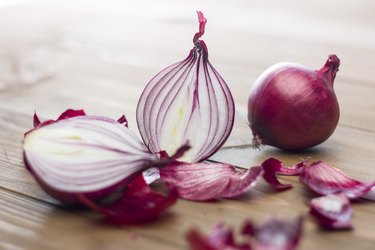
Many people experience gas after eating onions, especially when eaten raw. Watch for raw onion in salads, dips, sandwiches and on burgers. All varieties of onions can cause problems for sensitive individuals.
Kohlrabi
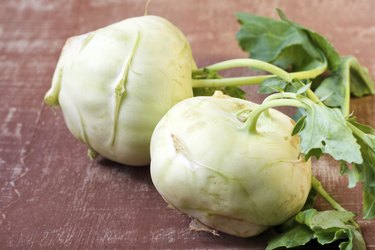
Kohlrabi is a vegetable distantly related to turnips. Raw kohlrabi is often thinly sliced and served in salads or dressed with lemon and olive oil. Kohlrabi shares the gas-producing qualities of broccoli and cauliflower.